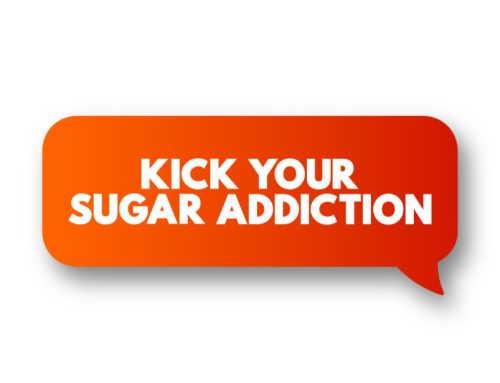Stress is an unavoidable part of modern life. From work pressures to personal obligations, we all experience stresses that can wreak havoc on our well-being. What’s often underestimated, though, is its effect on oral health. – this article will examine this intricate connection and offer helpful strategies and insights to maintain an effortless smile.
Stressful situations often trigger physiological responses in our bodies that cause physical effects to manifest themselves physically in ways that manifest physically in our mouths, teeth, gums, and jaws. Chronic or overwhelming stress may manifest through dental health problems such as teeth grinding, jaw clenching, gum disease, and poor hygiene practices. Understanding how stress impacts oral health is essential to mitigating its harmful effects and maintaining radiant smiles.
Stress has physical consequences, but it can also negatively impact dental hygiene routines. Individuals under significant stress often neglect regular brushing and flossing sessions as comfort measures or turn to sugary comfort foods and beverages, which compound existing dental issues. We will explore this correlation further while offering practical strategies to manage stress for a stress-free smile effectively.
Stress Can Affect Dental Health
Stress has many impacts on dental health; its manifestations vary significantly. One such symptom of stress is bruxism, whereby individuals unconsciously clench or grind their teeth in sleep, usually during the night – which can result in significant tooth wear and fractures over time. Furthermore, the force exerted during bruxism can often exceed that exerted during normal chewing activity, creating significant damage.
Stress can compromise our immune system’s defenses against infections, leaving our gums more susceptible to inflammation and gum disease. Periodontal diseases such as gingivitis and periodontitis are strongly associated with chronic stress; its inflammation-inducing response may exacerbate existing gum issues or trigger their appearance altogether.
The stress response also has an impact on saliva production. Stress can decrease saliva, essential for neutralizing acids and protecting tooth enamel, increasing the risk of cavities. Furthermore, stress can influence diet choices, leading people towards comfort foods that contain high amounts of sugar that could compromise dental health.
Recognizing Stress-Induced Dental Problems
Recognizing dental issues caused or worsened by stress is key to timely intervention. Common signs and symptoms to watch out for include:
Teeth Grinding and Jaw Clenching: Teeth grinding (bruxism), often occurring during sleep, can result in worn-down teeth, jaw pain, and headaches, but you may not even be aware of this behavior unless someone alerts you, such as your sleep partner.
Gum Problems: Stress can contribute to gum inflammation, bleeding, and tenderness. If your gums appear red or swollen when brushing or flossing or bleed, this may be stress-related.
Canker Sores: Stress can trigger painful canker sores inside your mouth, making eating and speaking uncomfortable. These small, round ulcers make eating and speaking uncomfortable.
Chronic stress can reduce saliva production, leading to dry mouth. Without enough saliva in your mouth, neutralizing acids and protecting against cavities become more challenging.
Changes to Oral Hygiene Habits: Stress can lead to changes in our oral hygiene routines, so if we notice ourselves missing brushing, flossing, or dental check-ups due to stress-induced causes, this must be addressed immediately.
Recognizing these signs can help you take proactive steps to manage stress and avoid further dental complications. In subsequent sections, we will discuss practical strategies for reducing stress and maintaining optimal dental health.
Effective Stress-management strategies
Effective stress management is crucial for mental and emotional well-being and protecting your smile. Below are several strategies designed to help manage tension while safeguarding dental health:
- Mindfulness Meditation: Engaging in mindfulness meditation can be an effective means of combating stress. By focusing on the present moment, mindfulness can reduce anxiety levels while decreasing tooth grinding or jaw clenching.
- Relaxation Techniques: Experiment with stress-relief techniques like deep breathing exercises, progressive muscle relaxation, and yoga to unwind, relax your jaw, and avoid physical manifestations of stress on dental health.
- Regular Physical Activity: Make time for regular physical activity, such as exercise, as part of your everyday life. Physical activity releases endorphins, which provide natural stress relievers. Furthermore, exercise helps promote better sleep, which is crucial to overall health, including dental well-being.
- Making Healthy Diet Choices: Eat a diet rich in fruits, vegetables, lean proteins, and whole grains for optimal health. Avoid eating too many sugary and caffeinated food items, which may exacerbate stress while diminishing dental health.
- Time Management: Setting realistic goals can significantly decrease stress. Feeling less overwhelmed reduces the chance that harmful stress-related behaviors such as teeth or neglecting dental care become part of daily routine.
- Seek Support: Reaching out for help can be immensely therapeutic when dealing with intense emotions or stress. Being open with others about your feelings is invaluable in managing them effectively.
Stress Reducing Dental Care Practices
Stress management is of utmost importance; however, there are specific dental care practices you can incorporate into your daily routine to combat its negative impact on oral health:
- Nightguards: If you find yourself grinding or clenching your jaw while sleeping, consult your dentist about a custom-fitted nightguard that could protect the enamel from further wear and tear.
- Relaxation Techniques Before Bed: Include relaxation techniques into your bedtime routine to ease tension in your jaw, such as gentle jaw stretches or massaging your jaw muscles. This could include gentle stretching exercises or massaging the muscles beneath.
- Regular Dental Check-Ups: Don’t neglect regular check-ups during high stress; your dentist is there to detect any emerging issues and provide guidance on how best to address them.
Healthier Habits to Achieve a Stress-Free Smile
Adopting healthy lifestyle habits can also create an atmosphere free from tension. For example, managing stress effectively and maintaining good dental care practices are two such measures that may lead to stress-free smiles.
- Regularly hydrate yourself by consuming enough water throughout the day to prevent stress-related dry mouth. Adequate hydration supports saliva production and oral health.
- Limit Alcohol and Caffeine Consumption: Consuming too much alcohol and caffeine can exacerbate stress, negatively impact your oral health, and decrease productivity. Indulge responsibly or look into healthier options available.
- Quality Sleep: Prioritize quality rest, as it is critical to stress reduction and overall well-being. Establish an enjoyable bedtime ritual and stick with an ongoing sleeping schedule.
Adopting these stress management strategies and including dental hygiene practices in your everyday routine can protect your smile from stress-induced damage while maintaining optimal oral health. Investing in your emotional and dental well-being is an investment in overall health and happiness.
Take the First Step Towards a Stress-Free Smile with HPS Advanced Dental
Stressful daily life can take its toll on our dental health, but that doesn’t have to be the case. By understanding the relationship between stress and dental issues, adopting stress management strategies, and prioritizing good dental care practices, you can maintain an effortless smile that exudes health and confidence.
Keep in mind that dental health is a crucial element of overall well-being. Ignoring its effects on your smile could result in painful conditions such as bruxism, gum disease, and cavities. By taking steps to manage stress effectively, you not only protect your dental health but also contribute towards creating a happier and more relaxed you!
At HPS Advanced Dental, we understand the impact of stress on your dental health. Our experienced team is here to support you on your journey to a stress-free smile. Here’s how we can help:






